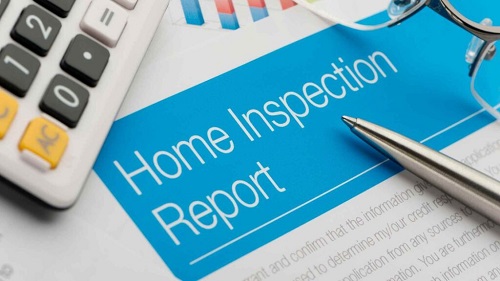
Mortgage Dove
Co-ops: What Are They and How Do They Work?
Co-ops, or cooperative housing, are a unique type of ownership structure. It is common to find them in some urban areas. Unlike traditional homeownership, co-ops allow you to own a share of a corporation rather than the property itself.
This type of ownership can be confusing for those unfamiliar with it. In this article, we will explore what a co-op is and how they work. We will also discuss the pros and cons of co-op ownership.
Whether you are a first-time homebuyer or an experienced investor, we will provide the information you need to understand and make an informed decision about co-op ownership.
What Is a Co-Op?
Cooperative housing (also known as a co-op) is a form of homeownership typically found in apartment buildings in big cities like New York. For practical intents and purposes, a co-op is a building owned by a corporation consisting of all its inhabitants. When you buy into a co-op, you are not purchasing a piece of property. Instead, you are personally buying shares in a nonprofit corporation that allows you to live on the property.
How Do Co-Op Homes Look?
A co-op housing is usually an apartment part of a large building in a big city. However, several other co-op models exist. A co-op can be a townhouse, duplex, or any other type of dwelling - including single-family homes, mobile homes, and groups of tiny houses situated on co-op land.
How Housing Cooperatives Work
Owners of a co-op hold shares of the cooperative rather than owning their unit outright, which would be the case in a condominium . Some co-ops permit owners to sell their co-op shares on the open market depending on the market rate for co-ops in that location and are subject to board approval.
Co-ops are usually less expensive than rental apartments because they operate on an at-cost basis, collecting money from residents to pay outstanding bills. In areas where the cost of living is high, such as New York City, co-ops can be a very appealing option from a financial point of view. However, a co-op may charge higher fees than a condo association.
Aside from the financial aspect of co-op ownership, it is also necessary to consider its social aspect. Smaller co-ops are run by residents with everyone pitching in to take care of tasks such as maintenance, landscaping, and setting rules. A subset of residents may serve on a board of directors for large co-ops.
Either way, there will be rules and a certain degree of social interaction. Co-op living may not be for you if you dislike sharing decision-making authority.
Different Types of Co-ops
A housing cooperative's structure varies depending on the specific jurisdiction of its location. In the U.S. and Canada, the most popular options are:
- Market Rate Co-ops: Members can buy and sell shares at whatever rate the market will bear.
- Limited Equity Co-ops: Places restrictions on the price at which shares may be bought and sold.
- Leasing Co-ops : The corporation leases the building rather than owning it and does not accumulate equity value. In this case, the co-op may have a cash reserve available if the building eventually goes up for sale.
Advantages and Disadvantages of Co-op Living
Like any form of housing, co-op living has its upsides and downsides – including pros and cons you will want to be mindful of before buying into a co-op.
Pros of Co-ops
- Lower purchase price: If you live in a large city such as Washington DC or New York, you will typically find that co-ops are slightly cheaper and require less closing costs than if you purchased a condo.
- Less responsibility: If you have ever owned a piece of property, you should know that you are responsible for any maintenance needs that arise. You may find that owning a co-op apartment is similar to owning a rental apartment, as you do not have to worry about significant upkeep outside your apartment.
- Better insight into your neighbors: Co-op boards require applicants to provide detailed and extensive financial records and character references so that you have at least some idea of who they are and whether or not you have any shared interests or values with them.
- Tax benefits: Properties in select areas of the country may allow you to deduct interest on your loan for your share of the property and the interest on the blanket mortgage the co-op holds for the building. Likewise, some maintenance fees may be tax deductible. If you have questions, contact an experienced tax professional.
Cons of Co-ops
- Higher monthly fees: Even though the purchase price of a co-op often comes in lower than buying a condo, the minimum down payments are typically higher. Monthly expenses and charges tend to be higher based on what costs these fees cover (such as utilities, parking, etc.).
- Greater restrictions : Do not forget to read the by-laws thoroughly before buying into a co-op. The rules will outline what residents are and are not allowed to do such as having pets or subletting their apartment. Taking the time to read the by-laws carefully can also help you determine what renovations, improvements, or changes you can make to your apartment unit.
- Limited buying pool: By-laws incorporated into co-op housing residences can restrict shareholders’ ability to resell their shares and divest themselves of real estate holdings.
Costs to Purchase a Co-op
Since you are essentially buying stock in a company, check out the financial situation of the cooperative and meet the other residents. They are both your business associates and your future neighbors. Before buying, you may want to consider the following factors:
- Location
- Amenities
- Costs
- Ability to lease your unit
- Pets policy
- Insurance requirements
When buying shares in a co-op, every buyer takes out a "share loan" instead of a traditional mortgage. These loans operate similarly to mortgages, but besides the loan payments made to the lender, co-op residents are responsible for paying a pro-rata share of the general costs of running and maintaining the building.
These costs, known as "maintenance," are usually paid to the partnership monthly and are billed on an at-cost basis. Maintenance may or may not cover real estate taxes, and the annual fees paid to maintenance tend to increase each year with inflation.
The monthly fee may also include the cost of the property's mortgage: Even if an individual tenant has paid off their portion of the loan, it is still possible for the building to have a mortgage on it, held by the corporation, not by an individual partner.
The share loan covers the cost of buying into the partnership. It has no relation to the underlying mortgage on the property itself. Buyers are entitled to all the tax deductions available to homeowners, including the ones for interest and real estate taxes.
Additional expenses include monthly utility bills for every buyer's residence, which the buyer pays individually, and insurance costs. A blanket insurance policy should cover the building itself but not the contents of each residence. A personal insurance policy, called an HO6, is required to protect personal possessions against water damage, fire, theft, and other calamities.
Special Considerations for Co-ops
Co-ops are subject to the same laws that govern fair housing, but they can be more restrictive than other housing options regarding ownership requirements. Because there is no landlord or tenant, the rules for purchasing shares in the partnership depend on the partners.
For instance, new buyers may need to have a particular net worth or a certain debt-to-income ratio in addition to demonstrating the ability to meet all the financial requirements of the co-op purchase.
There may also be a need to conduct a background check. Like other types of housing, some co-ops cater only to seniors or other specific groups. These more stringent ownership requirements provide a sense of security and exclusivity to co-op ownership.
In return for this exclusivity, co-ops usually operate more restrictively than condos. For example, high-end units may forbid subleasing. All partners contribute to the costs of managing the building.
A default—or failure to pay—by one partner may require the other partners to cover the partner's costs, although the strict ownership requirements tend to keep defaults to a minimum.
The Bottom Line: Is a Co-op Home Right for You?
The moment you buy into a co-op, you are not purchasing a specific piece of property but rather investing in shares of stock in a housing cooperative. Often confused with condos, co-ops can often take the form of apartments, duplexes, townhomes, and other traditional residential structures. However, co-ops follow a completely different set of rules.
Co-ops typically offer a more affordable way to purchase housing in big cities. Although governed by boards and by-laws and subject to more stringent application processes, they can also come with more rules and restrictions. Make sure you take the time to do your research before deciding if you are going to be a tenant or if you are going to buy a co-op.
"Mortgage Dove makes home financing convenient for every American. You can count on us to provide a home buying experience tailored to your personal needs and financial situation. We strive to give you the peace of mind that your home financing goals can be achieved.”

Mortgage®
www.mortgagedove.com



-and-how-does-it-work.png)